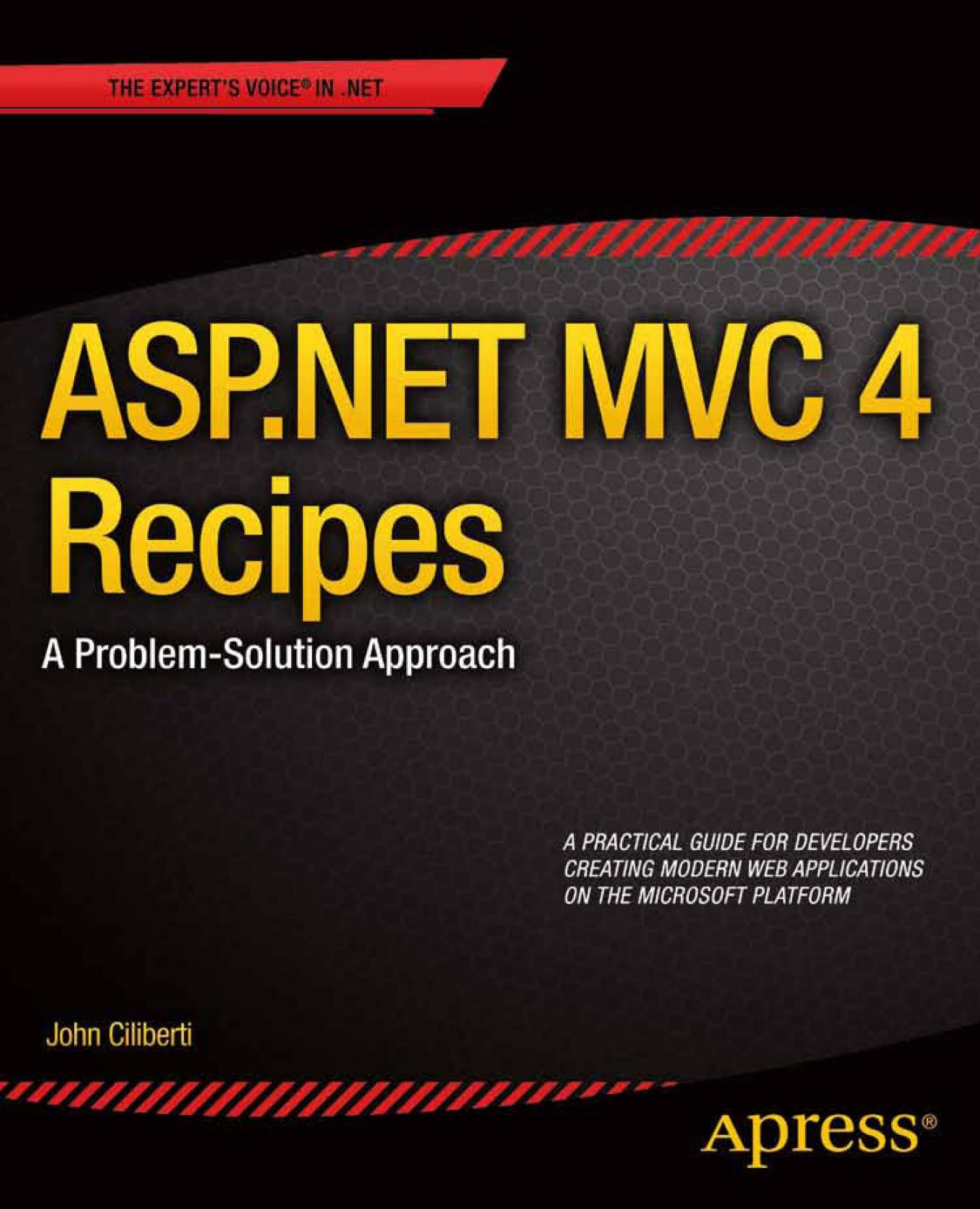ASP.NET MVC 4 Recipes by John Ciliberti

Author:John Ciliberti
Language: eng
Format: epub, pdf
ISBN: 9781430247739
Publisher: Apress
Listing 8-4. Using WhenAll with an IEnumerible
public async Task<ActionResult> CallTenServicesAsync()
{
List<Task<byte[]>> dataTasks = new List<Task<byte[]>>();
for (int i = 0; i < 10; i++)
{
using (WebClient webClient = new WebClient())
{
Uri uri = new Uri(string.Format(webserviceURL, i));
dataTasks.Add(webClient.DownloadDataTaskAsync(uri));
}
}
byte[][] allBytes = await Task.WhenAll(dataTasks);
ViewBag.totalLength = allBytes.Sum(w => w.Length);
return View();
}
Looking at Listings 8-3 and 8-4, you have probably noticed that all the Tasks passed to Task.WhenAll are of the same type. This is a requirement. If you attempt to pass in mixed types, the code will not compile. This is somewhat inconvenient. Since you are calling out to several services, it is likely that they will have different return types.
There are a few strategies that you can use to get around this. The first would be like in Listing 8-3, where the code is calling a RESTful web service and receiving the results as a JSON-encoded string. After the I/O operations are complete, you can then use a JSON serializer such as the one in Newtonsoft.Json to convert the JSON text into C# objects. Another strategy would be use an IEnumerable<Task> rather than a Task of a certain return type. In this case, you will not be able to pass the results of the await operation directly into an array, as in Listings 8-3 and 8-4. You will instead need to cast the results for each operation as shown in Listing 8-5.
Download
This site does not store any files on its server. We only index and link to content provided by other sites. Please contact the content providers to delete copyright contents if any and email us, we'll remove relevant links or contents immediately.
| Content Management | Programming |
| User Experience & Usability | User Generated Content |
| Web Design | Web Marketing |
| Web Services | Website Analytics |
The Mikado Method by Ola Ellnestam Daniel Brolund(23444)
Hello! Python by Anthony Briggs(22581)
Secrets of the JavaScript Ninja by John Resig Bear Bibeault(21372)
Kotlin in Action by Dmitry Jemerov(20427)
Dependency Injection in .NET by Mark Seemann(20380)
The Well-Grounded Java Developer by Benjamin J. Evans Martijn Verburg(20264)
Sass and Compass in Action by Wynn Netherland Nathan Weizenbaum Chris Eppstein Brandon Mathis(14803)
Secrets of the JavaScript Ninja by John Resig & Bear Bibeault(12769)
Jquery UI in Action : Master the concepts Of Jquery UI: A Step By Step Approach by ANMOL GOYAL(10440)
Svelte with Test-Driven Development by Daniel Irvine(8159)
Test-Driven Development with PHP 8 by Rainier Sarabia(7903)
Layered Design for Ruby on Rails Applications by Dementyev Vladimir;(7720)
Web Development with Django by Ben Shaw Saurabh Badhwar(7234)
React Application Architecture for Production by Alan Alickovic(6919)
Software Architecture for Web Developers by Mihaela Roxana Ghidersa(4999)
Audition by Ryu Murakami(4926)
Accelerating Server-Side Development with Fastify by Manuel Spigolon Maksim Sinik & Matteo Collina(4857)
Solidity Programming Essentials by Ritesh Modi(4589)
Functional Programming in JavaScript by Mantyla Dan(4553)
